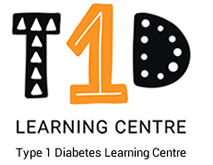2024 Refresh of learningT1D Courses
For the 2024 year, the Australian Paediatric Society (APS) has refreshed each of the three courses launched in 2023, making any necessary typographical fixes and adding "Next" and "Previous" buttons to each course, improving ease of use. The contents of each of the courses is essentially the same. With 2024 versions it will be easier for people required to complete the courses annually to obtain the required Certificate(s).
Background to Courses
In 2023 APS launched the significantly updated T1D Learning Centre school package.
The contents of the package were heavily influenced by submissions in a coronial inquiry where the need for clarification of roles and responsibilities, and simplicity and accuracy in terminology was evident.
The T1D Learning Centre’s objective is to facilitate best practice clinical care for students and to aid compliance with legal and regulatory requirements by transparently informing stakeholders of the requirements.
1. Management plans
The documents, previously known as the Diabetes Action Plan and Diabetes Management Plan have been amended to clearly define the legal responsibilities and are now titled:
- Emergency Response Plan (previously Diabetes Action Plan)
- Individual Medical Orders (previously Diabetes Management Plan)
2. E-learning modules
The international award-winning T1D e-learning modules have been updated to
- reflect expanding T1D technology and
- the need to individualise the student’s care,
- comprehend the school and its employee’s duty of care obligations to keep the student free from foreseeable harm.
There are 3 levels of care, consistent with the International ISPAD Position Statement. The levels include:
Level 1 – Essential Care of ALL students with Type 1 Diabetes 2024
This level should be completed by all school staff members in a school with a student with T1D.
Level 2 – Essential Care of the individual student with Type 1 Diabetes 2024
This level should be completed by all school staff members with a supervisory role for a student with T1D.
Level 3 – Complex Care of the individual student with Type 1 Diabetes 2024
This level should be completed by all school staff members with direct responsibility for health services and complex medical care. The content of this level to be completed is defined by the parent and medical team. Off campus management may need extra modules to be completed and will be individualised to the student and circumstance/ location of the off-campus activity.
3. School Camps
In addition the School camp checklist (https://www.t1d.org.au/resources/school-camp-checklist-type-1-diabetes) assists the school discharge their obligations in defined off campus activities.
4. A Parent Guide to Best Practice Type 1 Diabetes Care in Australian Schools
This advocacy document outlines the legal rights for parents with children with T1D at school and helps them understand how they may access best practice T1D management for their child. The clinical guidance is based on International Society of Pediatric and Adolescent Diabetes (ISPAD) standards and is produced and endorsed by the Australian Paediatric Society.
5. Training of school employees
Training by a Registered Training Organisation to obtain a qualification and accreditation should accompany completion the T1D Learning Centre modules. Currently, no such qualification and/or accreditation exists in Australia.
While the medical team and parent may assist until such processes are put in place, the medical team cannot authorise or assess competency of any employee to undertake complex care and administer drugs.
We continue to lobby the Federal Government to protect children with T1D by complying with existing legal frameworks.
Dr Peter Goss FRACP
Consultant Paediatrician
Chair Diabetes Australian Paediatric Society
25 January 2024
